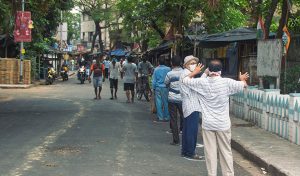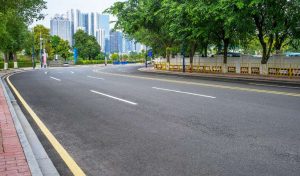For almost a year, the world has been struggling with a pandemic the likes of which have seldom been recorded in history. 2020 was a terrible year for almost all of us. But towards the end of the year, it seemed like the battle was about to be won.
The coronavirus live update stated that vaccines were being given emergency approval in many countries of the world, including India. Then came another coronavirus news regarding the rise of a new COVID strain- the B117 virus or the UK virus. It also has reached India.
And worryingly, many other countries, in their coronavirus updates, are reporting cases of a mutated coronavirus. Are they different from the UK virus, or almost the same? Let us look into it.
In September 2020, coronavirus news coming from Britain said that the country has recorded a new COVID strain. The B117 virus has the same protein structure as the regular coronavirus but is 70% more contagious even though it is not more dangerous.
In the last few days, a few more countries have found evidence of a new coronavirus strain.
Authorities at Japan’s National Institute Of Infectious Diseases told the press that they have detected a new COVID strain in 4 travellers coming in from Brazil. According to their coronavirus updates, initial studies have confirmed that it is a different strain compared to the UK virus even though there are some similar changes in their genetic structural makeup. Studies are ongoing to determine its symptoms and whether the coronavirus vaccine will be effective against it.
Brazil had witnessed one of the highest mortality rates from COVID. Way back in July 2020, some scientists realised that a new strain of COVID had mutated in Brazil. They called it the B1128 strain. In December 2020, judging by the coronavirus updates released by the authorities, it began to spread rapidly. As of now, the new COVID strain is restricted to Rio de Janeiro. There is no proof that this strain is deadlier or more infectious than the regular SARS-CoV.
The USA coronavirus variant is a little different from the UK strain. It is possibly a further mutation of the B117 virus and 50% more transmissible than the regular SARS-Cov.
The reason why so many variants of COVID keep arising because The virus has not settled into a predictable pattern. It continues to evolve. Omicron is the variant of concern that remains dominant worldwide and there are still more than 600 sublineages of Omicron that are in circulation. One of the variants that is now in India as of April 2023 is XBB1.16 variant of omicron or called as arcutus strain.
Dr. M.G. Kartheeka, MBBS, MD
Analysis of the new COVID strain from South Africa has revealed that the 501.V2 variant (that’s what South Africa’s new variant of coronavirus is being called) has undergone many mutations which means that there could be several versions of 501.V2.
But the good news is that when scientists tested Pfizer’s vaccine against the new COVID-19 mutants, the COVID-19 vaccine was found to be effective.
The South African variant has already reached Austria and Norway via travellers.
According to COVID-19 news from Mexico, Brazil’s new COVID strain has been found in a 56-year-old man in Mexico City. It may have spread to others he had come in contact with. Since this COVID strain has been found to be very contagious, authorities are doing everything possible to curb its spread.
The new coronavirus strain spreading like wildfire in Australia is actually the UK virus and has close links with the Brazil virus. In fact, it has been so contagious that Brisbane had to be locked down.
Concerns always linger around with newer variants of covid as they are usually very unpredictable in terms of their contagiousness and mortality. We may not know how the virus might change or evolve with newer strains and if it is better at infecting people or causing higher hospitalizations.
Dr. Ashish Bajaj, M.B.B.S., M.D.
All these new COVID mutants bear a resemblance. The spike protein is not all that different from the coronavirus against which the COVID vaccine is effective. Already quite a few studies have found that the coronavirus vaccine works against the new mutations. However, further studies will be required.
Scientists themselves have many unanswered questions regarding the new COVID strains. But all of them agree that right now COVID precautions are our best line of defence. So let us follow these in our everyday lives.
It has recently been announced that India will roll out its COVID-19 vaccination drive from January 2021. All Indians have sighed with relief because we hope that very soon things will go back to normal.
But one question that is on our minds and that has not yet been answered is this – Will COVID-19 survivors get the vaccine?
Here’s what we know so far-
Why do some people think COVID-19 survivors do not need the vaccine? Let us first see how the COVID-19 vaccine works. Please modify this statement to ” The vaccine works by either introducing killed coronavirus or structures similar to coronavirus into the body. In response to the vaccine which contains “killed coronavirus” or the “corona virus-like organisms”, our body starts producing antibodies which help to fight back in case of any exposure to Coronavirus. Thus, vaccination can help in protecting the body from this virus.
This is immunization through vaccination. But did you know that immunization also happens through exposure to disease? People who have caught COVID-19 have also developed antibodies the same way. And those antibodies are in their blood now. Hence, COVID-19 survivors are already immune to COVID-19. They have the required immunity without the COVID-19 vaccine. That is why many experts feel that the doses of coronavirus vaccine should be saved for people who have never contracted COVID-19.
Even people who have recovered from COVID-19 are urged to get vaccinated, especially as the extra-contagious delta variant surges and a new study shows survivors who ignored that advice were more than twice as likely to get reinfected.
Dr. M.G. Kartheeka, MBBS, MD
Another reason why healthcare professionals are hesitant to vaccinate COVID-19 survivors is that they do not know how their bodies would react to the COVID-19 vaccine.
In all the COVID-19 vaccine trials only people who had never been exposed to the virus were injected with the vaccine candidates. No COVID-19 vaccine trial enlisted COVID-19 survivors. So there is no data or analysis of how the COVID-19 vaccine acts in their body. It might be dangerous to give them the COVID-19 vaccine.
Might COVID-19 survivors be in need of the COVID-19 vaccine after all? There are conflicting studies on how long their acquired immunity lasts. While some reports have said that immunity lasts for only 3 months others say that they might be safe for longer than that.
And what about COVID-19 survivors with comorbidities such as heart conditions, diabetes, hypertension, etc? Their immunity is already compromised. Again, it is not known whether they might require extra protection which the COVID-19 vaccine may offer.
The Indian government has also released a priority list of people who will be receiving the vaccine. As expected, the healthcare providers, frontline workers, people above 50 years of age, and people with comorbidities will receive the vaccine before others.
Until further information is released by the Government, we will not know whether COVID-19 survivors will need the COVID-19 vaccine. In the meantime, let us all comply with COVID-19 protocol to stay safe.
By now we have all heard that India and many other countries have stopped operating airlines to and from the UK. The travel ban is likely to last until the end of December. The culprit behind this new travel restriction is the new variant of the COVID virus. Recently the UK announced the discovery of a new strain of SARS-CoV-2. This mutated virus has been named B117 virus or VUI2020/21 and it has scared virologists and healthcare experts in the UK and across the world.
And with the new COVID-19 vaccines almost ready to roll out, many people are asking if the vaccines would be effective against the new B117 virus.
Here is what we know about it.
Recently the UK Prime Minister Boris Johnson declared tough lockdown measures to be implemented in Britain during the holiday season between Christmas and New Year. This is in response to the new B117 virus that has recently emerged in the country.
Scientists and virologists have already started analyzing the B117 virus and they do not like what they have found.
The new UK strain is not the only mutation of COVID-19 that is known to us. Viruses have a nasty habit of evolving fast in response to our immunity. Multiple strains already exist and are categorized into 4 groups- Alpha, Beta, Gamma, and delta.
The simple reason is that B117 virus is more contagious.
In the last few weeks, there has been a steady rise in the number of COVID infections in south and east England. Samples from infected people have exposed to the new virus. Already 1108 people have been infected with the new strain. Epidemiologists and virologists have found that B117 virus is 70% more transmissible than the other strains.
It has been observed that the nature of the proteins that help in the attachment of the virus has undergone a mutation. This new alteration of the coronavirus has increased the rate of transmission in human beings.
The reproduction number of this UK strain is also higher than other strains. Reproduction number refers to the number of people who can be infected from 1 infected person.
But there is good news. Experts have also found that the B117 virus does not cause a more severe infection than the other strains. Its only danger lies in the fact that it is more communicable.
The effectiveness of the COVID-19 vaccine is still in anticipation. However, scientists have already started new research into the vaccine’s efficacy in building an immune response to the B117 virus.
Healthcare experts fear that the virus strain has already arrived in India. So far, health officials have confirmed that 4 people coming in from the UK, (2 in Kolkata, 1 in Tamil Nadu and 1 in Karnataka) have tested positive for the B117 virus. But confirmation hasn’t come in from the Government. Since India has suspended flights to and from the UK, it can be hoped that the new strain does not spread like wildfire in India.
The best way to combat any strain of COVID, according to the WHO, is to observe the COVID protocol. So let us continue wearing masks, sanitizing ourselves, and maintaining social distancing.
According to the latest press release by the Honorable Prime Minister of India, vaccination will start in January 2021. After a year-long struggle with COVID-19, financial difficulties, job loss, and the constant threat of falling sick, this is the news that has somehow delighted us all.
Now, so we know that vaccination will kick off early next year, have you actually thought about how India will vaccinate millions of people?
India’s current population is nearly 1.3 billion. You might think that since India manages the largest electoral system in the world so efficiently, vaccinating a huge number of people will be easy. However, India has 900 million voters, whereas 1.3 billion people will need vaccine. Also, vaccination of mass is not as easy as managing the electoral system.
But as our honurable Prime Minister has pointed out, India also has in place the world’s largest immunization system. Since independence, children and pregnant women are vaccinated against major illnesses at both government and private healthcare facilities. These vaccines are produced, and stored in India and regularly transported across the length and breadth of the country to reach every village and city.
Hence India will utilise this system to bring the vaccine to the most remotecorners of the country.
Vaccinating not just adults but even children is important as a COVID-19 vaccine can prevent your child from getting infected and spreading coronavirus. If your child gets infected, a COVID-19 vaccine could prevent them from becoming severely ill in subsequent exposure to COVID-19 infection.
Dr. Ashish Bajaj – M.B.B.S, M.D.
While what the honorable Prime Minister said sounds promising, experts feel that things might not be so simple.
Another very legitimate fear that the government has not yet addressed is that if all resources are being directed towards providing the masses with COVID-19 vaccines, how will children and women be administered other vital vaccines? This could put millions of lives at risk.
Experts feel that India has to massively scale up infrastructure in the upcoming months.
Unless the logistics are handled without error, India’s entire population will not be vaccinated as soon as we had expected. Collaboration internally and internationally is of the highest importance now.
The World Health Organization has marked May 31st as World No Tobacco Day. Tobacco kills nearly 8 million people worldwide every year. And yet, people continue to consume tobacco in some form. Even though the number of users has fallen in the last 20 years, an estimated 1.337 billion people still use tobacco in the world.
Of all the different tobacco-associated diseases that WHO and international governments have warned us against, a new infection has been added to that list. That disease is COVID-19!
What is this association between coronavirus and tobacco all about? Read on to know more.
A growing volume of evidence collected by the WHO says that if you are a tobacco user, your chances of contracting COVID-19 are higher than a non-user. Smoking and direct tobacco usage can make symptoms of COVID-19 far worse.
The WHO has found that when long-time tobacco users are infected with coronavirus, they are more likely to require-
They also develop other health complications associated with COVID-19 that can even turn severe –
Smoking or chewing tobacco harms the respiratory system. Tobacco can-

Moreover, people with weakened respiratory systems are also susceptible to –
All these diseases are comorbid conditions of COVID-19 and can make it severe. The virus that causes COVID-19 also primarily targets the respiratory system. If the system is already weakened, the effect of COVID-19 can be more dangerous.
Tobacco also damages the cardiovascular system and is likely to give you-
These cardiovascular conditions too are risk factors of COVID-19 and can make its recovery more difficult.
At present, all of us are adopting precautions to keep our families and ourselves safe from COVID-19.
But are you doing enough? Are you a smoker who frequently puffs on a cigarette? Now that you are home due to lockdown, you could be exposing your loved ones to the effects of second-hand smoking. Exposure to tobacco fumes can do as much damage to the lungs, arteries and heart as direct consumption of tobacco. So, in a way, you are making your family and yourself vulnerable.
So, alongside social distancing and washing hands frequently, adopt one more precautionary measure. Quit smoking. Don’t chew tobacco. Tobacco weakens your body in many ways, and this is the time when we should be focusing on keeping our bodies as strong as possible.
First things first, accept that you are addicted to tobacco. Until you admit that there is a problem, you will not be able to resolve it.
You will also have to understand the dangers that tobacco poses, not just to yourself but to your loved ones as well. Do you want to be responsible for them becoming infected? Wouldn’t you do everything you can to keep them safe
If you have been smoking for a long time, it’s not easy to stop suddenly. So practise mindfulness techniques like meditating daily to keep your mind calm. This will help control the urge to smoke.

Now, you must make up your mind not to purchase tobacco products. Do not stockpile tobacco. When you go out to buy necessities, try to avoid stores that sell cigarettes or tobacco products to avoid temptation.
Dispose of all packets of existing tobacco products you have in the house to avoid temptation. If there are other smokers in the family, ask them to do the same.
If the urge to smoke is very strong, you can use sugar-free chewing gums to beat the urge. It has been seen that chewing gum keeps your mind occupied and reduces the urge to smoke.
Kick the deadly habit of tobacco consumption to keep you and your loved ones safe. Stop smoking now and emerge a healthier and fitter person at the end of the lockdown.
Also Read: What Causes Yellow Teeth: Unpacking Oral Health Misconceptionsa
Disclaimer: The information provided here is for educational/awareness purposes only and is not intended to be a substitute for medical treatment by a healthcare professional and should not be relied upon to diagnose or treat any medical condition. The reader should consult a registered medical practitioner to determine the appropriateness of the information and before consuming any medication. PharmEasy does not provide any guarantee or warranty (express or implied) regarding the accuracy, adequacy, completeness, legality, reliability or usefulness of the information; and disclaims any liability arising thereof.
Links and product recommendations in the information provided here are advertisements of third-party products available on the website. PharmEasy does not make any representation on the accuracy or suitability of such products/services. Advertisements do not influence the editorial decisions or content. The information in this blog is subject to change without notice. The authors and administrators reserve the right to modify, add, or remove content without notification. It is your responsibility to review this disclaimer regularly for any changes.
The lockdown implemented to enforce social distancing and contain the spread of COVID-19 will possibly be eased gradually. At present, many restrictions are already being eased all over the country. However, this has led to an increase in the number of cases in India. Experts fear that there might be a second wave of COVID-19 arriving soon.
A second wave means a surge in the number of COVID-19 cases after there has been a decline. It has already happened in China, where cluster infection has been reported recently even after weeks of no new diagnosed cases. It is possible that other countries including India will also witness a similar trajectory.
It is difficult to pinpoint exactly when the second wave will arrive. But epidemiologists and healthcare professionals feel it will happen in the July-August period.
As the lockdown is slowly being relaxed, people have started going out. All economic activities are resuming. More and more people will be joining their workplace. Shopping centres and shops will open, and thousands will flock to the stores to make essential and non-essential purchases. Movie theatres and malls, if opened, too will attract crowds. People have been confined for so long that they will want to meet with their acquaintances and friends.

If the lockdown is eased further, we can assume that for the whole of June, people will be mingling with each other. Some of these people might be infected and will pass on the coronavirus to those they come in contact with.
Going by this trend, new people will start getting infected during June, and fresh cases will be reported from the end of June or July onwards. The second wave is very likely to happen.
Studies have shown that previous infection was highly protective against reinfection with alpha, beta and delta variants, but less so against omicron, BA. 1. A previous infection provided moderate protection from reinfection with omicron BA. 1 (45%), compared with stronger protection against pre-omicron variants (82%).
Dr. Ashish Bajaj – M.B.B.S, M.D.
It is not possible to confirm if the second wave will arrive or not, so it is best to be prepared. The government and the citizens have to be extremely cautious. What we do now will decide how dangerously the second wave will be.
1. Maintain social distancing when you go out.
2. Do not go out unless necessary, even after the lockdown is lifted.
3. If you are going back to the office, use hand sanitisers, hand wash and face masks all the time.

4. Do not gather in groups anywhere, including the office.
5. Keep your workstation disinfected.
6. Do not shake hands with clients.
7. Opt for e-conferences.
8. Continue to work from home wherever possible.
9. Wash your clothes and disinfect your office bag after coming home, don’t let others come in contact with your stuff.
10. Continue following certain lockdown measures like cleaning up groceries, fruits, vegetables, food packets, etc.
11. Eat healthily and keep exercising to boost immunity.
Governments (both State and Union) are doing the following –
Only by being cautious can we keep our loved ones and ourselves safe from the second wave.
Remember, step out only when necessary to stay protected at all times.
Disclaimer: The information provided here is for educational/awareness purposes only and is not intended to be a substitute for medical treatment by a healthcare professional and should not be relied upon to diagnose or treat any medical condition. The reader should consult a registered medical practitioner to determine the appropriateness of the information and before consuming any medication. PharmEasy does not provide any guarantee or warranty (express or implied) regarding the accuracy, adequacy, completeness, legality, reliability or usefulness of the information; and disclaims any liability arising thereof.
Links and product recommendations in the information provided here are advertisements of third-party products available on the website. PharmEasy does not make any representation on the accuracy or suitability of such products/services. Advertisements do not influence the editorial decisions or content. The information in this blog is subject to change without notice. The authors and administrators reserve the right to modify, add, or remove content without notification. It is your responsibility to review this disclaimer regularly for any changes.
The last few weeks have not been easy for anyone. All of us have been in lockdown, away from many of our loved ones and unable to carry on with our usual routine.
It has been difficult for us too! Although medicines are classified as ‘essential commodities’, movement restrictions have triggered a supply and manpower shortfall. So even as your orders began to pour in, the ban on interstate movement of goods made delivering your orders to your doorstep challenging for us.
We are doing so while ensuring our consumers, as well as employees to remain completely safe.
The measures taken to prevent the spread of COVID-19 hit us all hard. The lockdown has been enforced to save lives. And despite all inconveniences, just like you, we too have been functioning to the best of our ability within these restrictions.
Since India has been making progress in the war against COVID-19, both the Union and State governments have decided to gradually lift lockdown restrictions in phases depending on how well the regions have been able to contain the spread of the infection. So, you might be wondering how that will impact our operations. So we will give you a brief description of our current status-
We are glad to share that currently, we are operational in 90%+ pin codes in India. And we aim to be 100% operational very soon.
We appreciate how you have placed your trust with us. So, we request you to continue to be patient. All restrictions are not yet lifted. So there might be some disruptions and the deliveries may be slightly delayed. We are doing everything possible to eliminate such delays and ensure you have a smooth buying experience with us.
Also Read: How to Get Rid of Static Hair Naturally: Home Remedies and Tips
These are difficult and uncertain times. You, our customers, are of paramount importance to us. Our aim is to make all medicines and healthcare products accessible to everyone.
We can’t abandon you when you need us the most! Your health is our responsibility. And we will continue to serve you through difficult times and regular times, no matter how many challenges arise.
So stay safe and shop from home with PharmEasy!
The COVID-19 pandemic has turned our lives upside down in so many ways. From lockdowns, social distancing to working from home, our daily routines have been completely overhauled.
Now people are beginning to ask an important question – are these changes temporary? Or will they be a permanent part of our lives from now onwards?
We have read news reports of healthcare workers working 24*7 to battle COVID-19 at great risk to their lives. Some of them are staying in temporary hostels, away from their families and doing their job.
But can they continue to work in a state of high alert forever? That too, while putting themselves in danger. The stress due to COVID-19 on our healthcare system needs to come down.
Moreover, consider the present situation in the world, the summer Olympics, IPL, major trade conventions to India’s economy – everything has come to a halt due to COVID-19. While no one can say for certain when things will go back to normal or if they even will, one thing is certain.
Our lives after the lockdown will no longer be the same. There will be radical changes in how we work, commute, socialize and communicate.
This is a must to ensure COVID-19 is contained for our good.
Planning to shake hands? Think again. Immediately after COVID-19 struck, there were visuals of world leaders ditching the handshake and using the ‘Namaste’ greeting. The Namaste is a form of greeting used in India that does not involve contact with the other person, unlike a handshake.
With social distancing being encouraged, we will see more and more people ditching the handshake because of the risk a handshake carries in a post-COVID-19 world.
With schools and colleges being shut, there is a lot of interest in online classes. Teachers across the world are using the power of the internet to deliver educational content to a student’s house.
Real-time online classes are being held on apps like Zoom that have ensured that the absence of a physical classroom does not stop the learning of students. This could signal a change in the way students learn in a school after the pandemic ends.

Are you washing your hands frequently? One thing the COVID-19 pandemic has taught us is to maintain very high standards of personal hygiene. People are now understanding how simple acts like washing hands with soap and water may save their lives.
Before the pandemic started, many of us treated hand washing very casually, but that has changed completely in the past few months and this change is something that is going to stay for a long time to come.
In India, it is common to see spit stains on government buildings, railway stations and roads. While the government tried to spread awareness by putting up posters and even imposing fines, no one cared.
But now that everyone has to wear masks in public places and maintain personal hygiene, spitting could be a thing of the past.
Three to four weeks into the lockdown, environmentalists across the world noticed something strange – the ozone layer was healing itself. Not just that, air quality in cities like Delhi and Mumbai has improved drastically during the lockdown.
What this tells us is that nature can heal quickly if we give it a little space and time. This will put into perspective how we have taken nature for a ride all these years and encourage people to do more for the environment and enjoy the advantages of a greener earth.

The COVID-19 pandemic has brought us closer than ever before. Everyone is united in efforts to contain the virus. We have realized that if we don’t prepare ourselves well, then we can lose what we have now.
This thought that we may lose it if we are not careful has made us more appreciative of the present and thankful for what we have.
While we may be in lockdown at present, we should prepare ourselves mentally for the changes going to take place post-COVID-19. This will help us adapt and emerge as stronger individuals.
Disclaimer: The information provided here is for educational/awareness purposes only and is not intended to be a substitute for medical treatment by a healthcare professional and should not be relied upon to diagnose or treat any medical condition. The reader should consult a registered medical practitioner to determine the appropriateness of the information and before consuming any medication. PharmEasy does not provide any guarantee or warranty (express or implied) regarding the accuracy, adequacy, completeness, legality, reliability or usefulness of the information; and disclaims any liability arising thereof.
Links and product recommendations in the information provided here are advertisements of third-party products available on the website. PharmEasy does not make any representation on the accuracy or suitability of such products/services. Advertisements do not influence the editorial decisions or content. The information in this blog is subject to change without notice. The authors and administrators reserve the right to modify, add, or remove content without notification. It is your responsibility to review this disclaimer regularly for any changes.

Links and product recommendations in the information provided here are advertisements of third-party products available on the website. PharmEasy does not make any representation on the accuracy or suitability of such products/services. Advertisements do not influence the editorial decisions or content. The information in this blog is subject to change without notice. The authors and administrators reserve the right to modify, add, or remove content without notification. It is your responsibility to review this disclaimer regularly for any changes.
 3. In China, the most polluted country in the world, the air pollution level has dropped by 25%. According to research by Stanford University, this could save the lives of 4000 children under the age of 5 and 73,000 adults over the age of 70. 4. The international lens is on the illegal marketing of wildlife. It is believed that COVID-19 originated from a market where wildlife is sold and slaughtered. Wildlife conservationists are urging governments of all countries to take firm action against the poaching of wild animals and wildlife consumption.
3. In China, the most polluted country in the world, the air pollution level has dropped by 25%. According to research by Stanford University, this could save the lives of 4000 children under the age of 5 and 73,000 adults over the age of 70. 4. The international lens is on the illegal marketing of wildlife. It is believed that COVID-19 originated from a market where wildlife is sold and slaughtered. Wildlife conservationists are urging governments of all countries to take firm action against the poaching of wild animals and wildlife consumption. 3. Nearly 4.75 Lakh (the highest number in many years) Olive Ridley turtles have made their nests in the Rushikulya beach of Odisha due to empty beaches.The world has changed and we don’t know when this crisis will pass. All we can do is cooperate with our governments and actively practise social distancing to stay safe.Disclaimer: The information provided here is for educational/awareness purposes only and is not intended to be a substitute for medical treatment by a healthcare professional and should not be relied upon to diagnose or treat any medical condition. The reader should consult a registered medical practitioner to determine the appropriateness of the information and before consuming any medication. PharmEasy does not provide any guarantee or warranty (express or implied) regarding the accuracy, adequacy, completeness, legality, reliability or usefulness of the information; and disclaims any liability arising thereof.
3. Nearly 4.75 Lakh (the highest number in many years) Olive Ridley turtles have made their nests in the Rushikulya beach of Odisha due to empty beaches.The world has changed and we don’t know when this crisis will pass. All we can do is cooperate with our governments and actively practise social distancing to stay safe.Disclaimer: The information provided here is for educational/awareness purposes only and is not intended to be a substitute for medical treatment by a healthcare professional and should not be relied upon to diagnose or treat any medical condition. The reader should consult a registered medical practitioner to determine the appropriateness of the information and before consuming any medication. PharmEasy does not provide any guarantee or warranty (express or implied) regarding the accuracy, adequacy, completeness, legality, reliability or usefulness of the information; and disclaims any liability arising thereof.Links and product recommendations in the information provided here are advertisements of third-party products available on the website. PharmEasy does not make any representation on the accuracy or suitability of such products/services. Advertisements do not influence the editorial decisions or content. The information in this blog is subject to change without notice. The authors and administrators reserve the right to modify, add, or remove content without notification. It is your responsibility to review this disclaimer regularly for any changes.
« Previous Page